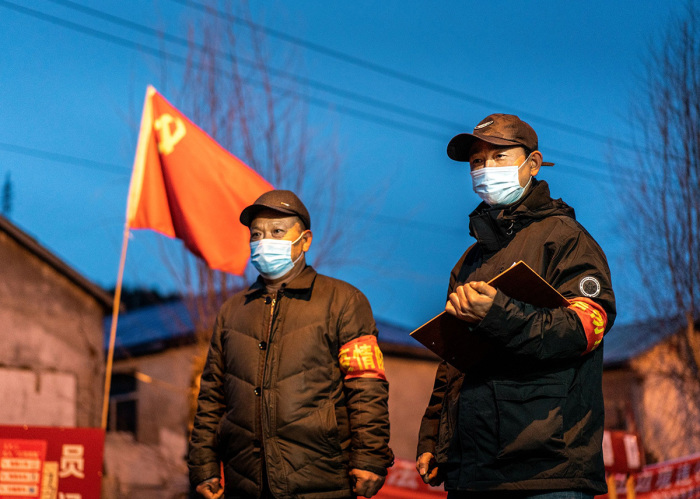China's economy now paying for past forced abortion policy

In early August, I wrote about the then-emerging Chinese financial crisis, arguing that the underperformance of Chinese stocks was in part a consequence of the one-child policy – and could be interpreted as a form of Providential judgment. I regret to report that the situation has not improved in the intervening two months. While Chinese stocks have partially recovered from the initial shocks of the summer, the crisis has taken on a more macro-economic scope, expanding beyond tech and education and into the real estate market. I would contend that this phase, too, can be laid at the feet of the one-child policy (or, rather, laid at the feet of those who imposed the one-child policy.)
Here’s a refresher on the story up to now: Over the spring and summer of 2021, the Chinese government announced a series of unexpected, extreme regulations on domestic markets, leading to the underperformance of Chinese stocks and bonds in comparison to their neighbors. These interventions included regulations on video gaming, an attack on foreign ownership of Chinese businesses, and, perhaps most importantly, a complete overhaul of the education sector.
Today, the real estate sector, which accounts for nearly 30% of China’s gross domestic product, is in a state of crisis. A recent New York Times piece ponders “Is China’s housing market a huge bubble that’s starting to burst?” The first domino to fall could be Evergrande, China’s largest property developer. The real estate giant is now “the most heavily indebted real estate company in the world,” and is on track to default this month.
Real estate was, and is, a key part of China’s rapid economic growth, but supply has outpaced demand. The large real estate companies, Evergrande in particular, now find themselves unable to pay their debts as they sit on vast swaths of unsold buildings. According to one analyst interview in the Financial Times, there are enough empty apartment buildings in China to house 90 million people. This is not some minor story; it is an imminent problem, with no clear solution, that lies at the heart of the Chinese economy.
I argued in my last piece on China that the one-child policy is at least partially to blame for their financial crisis. The intervention in the education industry, which sparked a sell-off of Chinese assets, was an attempt to lower the cost of child education in order to boost birth rates which were suppressed by the forced abortions and sterilizations of the one-child era.
The real estate bubble is no different. The supply of real estate outpaced demand because the generations that would have inhabited these now-derelict buildings were either aborted en masse or were never conceived in the first place. While it’s difficult to ascertain exactly how much of China’s population was lost to the one-child policy, we can make some educated guesses. As of 2016, there were approximately 30 million more boys in China than girls. The Chinese government’s official estimate is that the one-child policy “prevented” 400 million births.
Granted, that number is highly debatable: it assumes that birthrates would have remained the same as they were just before the introduction of the policy. But even if we say that the Chinese government is overestimating their “success” by a factor of 4, we’re still left with around 100 million people who were never born. Back in April, China reported the first decline in its population in 5 decades – in other words, since Mao’s “Great Leap Forward,” which resulted in up to 55million deaths.
China’s population is now expected to shrinkfrom 1.4bn to 1.3bn by 2050. In the 1970s, the average Chinese woman had 5 children; today, the average Chinese family is composed of just over 3 people. The one-child policy was introduced in 1979.
China was able to achieve such rapid economic growth because of its adoption of market-oriented policies in the post-Mao era, sparking - among other things - a massive expansion in real estate. Today, vast complexes of office buildings and apartments sit empty, until they’re eventually toppled in controlled demolitions.
Though the Chinese Communist Party is deeply immoral, they are not insane, and they know that this is a problem that must be dealt with. They understand now that Marxism and Malthusianism are not conducive to a prosperous society. In fact, in 2015, China dropped the one-child policy in favor of a “three child policy.” But the damage has already been done:
“The new ‘three-child policy’ received generally lukewarm responses in China. Many Chinese couples say they prefer not to have multiple children due to the rising cost of child rearing, how it would complicate women’s professional aspirations and declining preference for a son."
East Asia Forum
Lest someone interpret this series on China’s financial crisis as an attack on China the nation, rather than the post-1949 Chinese government, I would be remiss not to point out that the whole program was Western in origin. Marxism and Malthusianism, the animating principles of the CCP’s cult of death, came from… Marx and Malthus. The traditional pro-family stance of Chinese culture was forcibly suppressed over the course of decades by the Communist Party, on the basis of Western ideologies.
As Christians, we believe in the divine injunction to “be fruitful and multiply,” that “children are a gift from the Lord,” and that humans, being made in the image of God, are of intrinsic infinite value. In the post-Enlightenment period, anti-Christian philosophies that denigrated the dignity of humanity were espoused – even, in the case of Thomas Malthus, from the mouths of priests. That is the philosophy the Chinese government adopted. Now they are paying for it.
Charles is a risk analyst and columnist at TownhallFinance. He has written for National Review Online, AsiaTimes, RealClearMarkets, and the Theopolis Institute. @charlesgbowyer




























